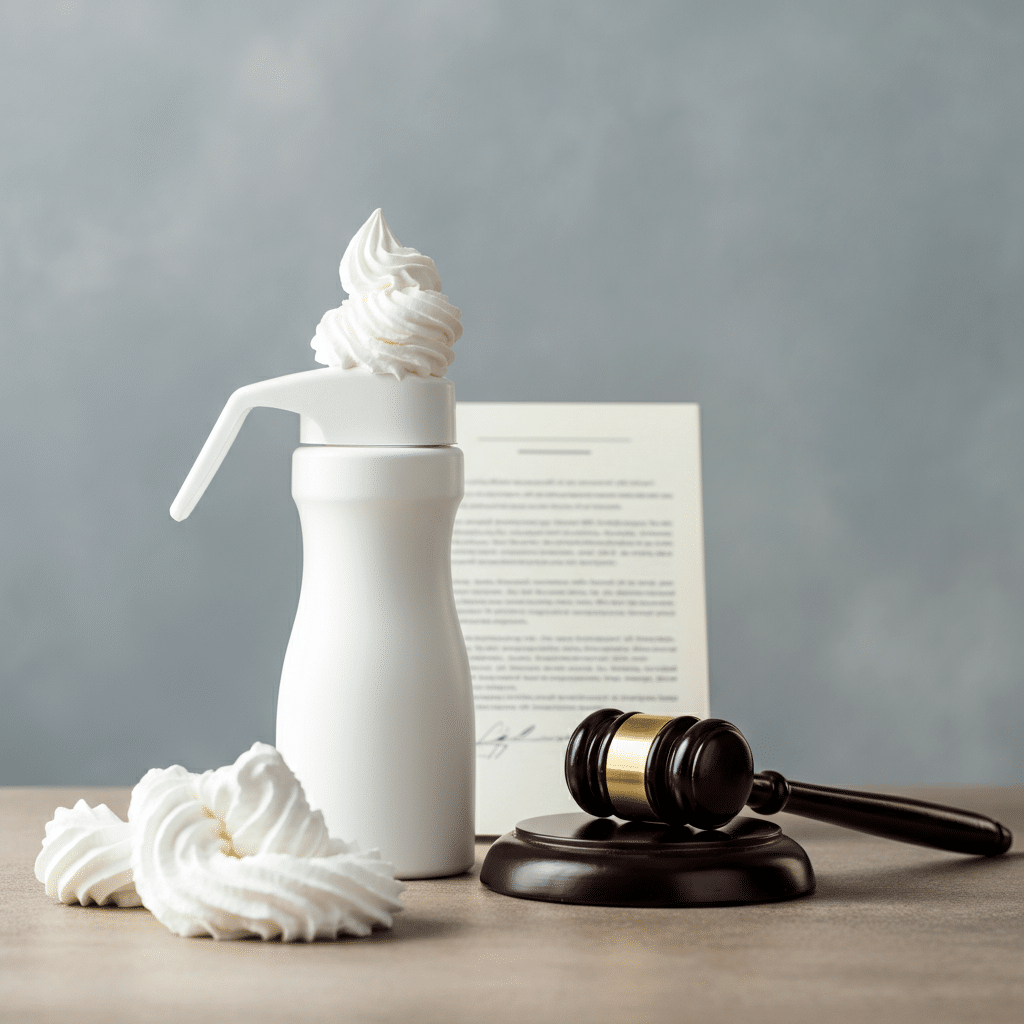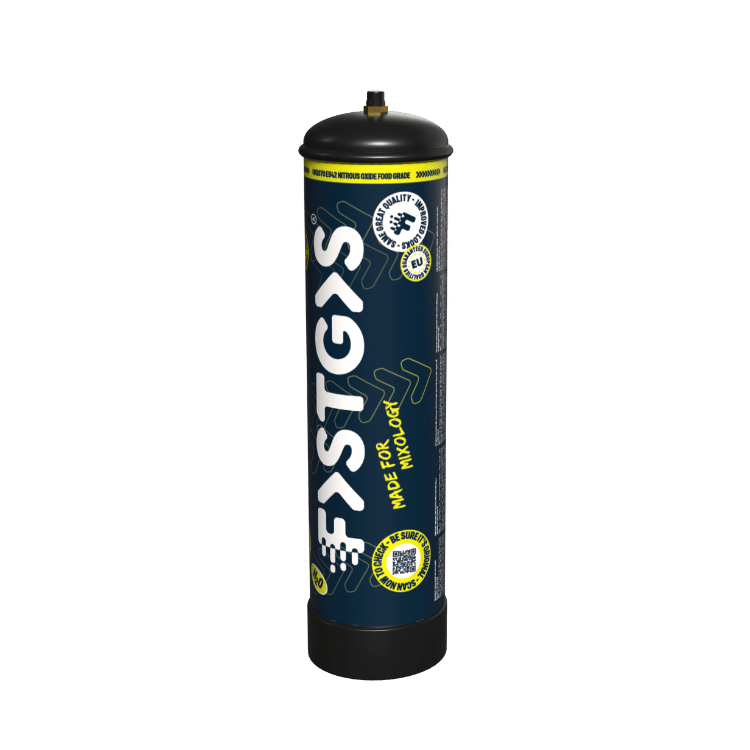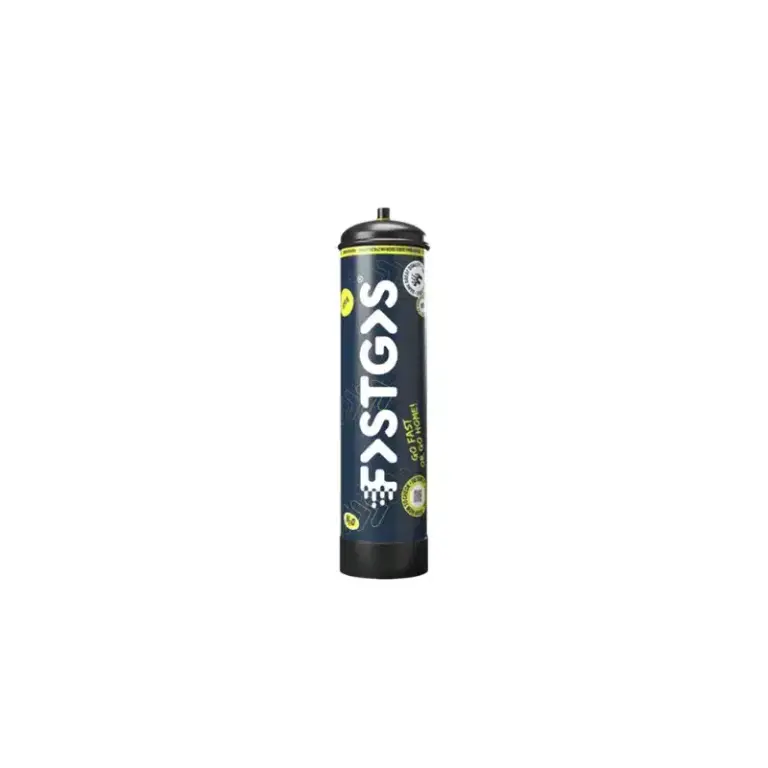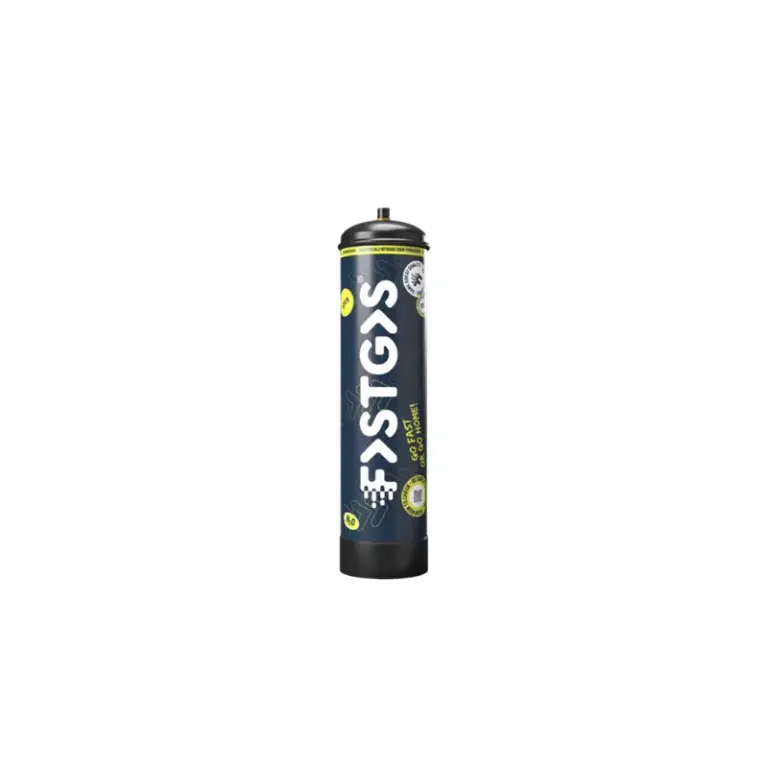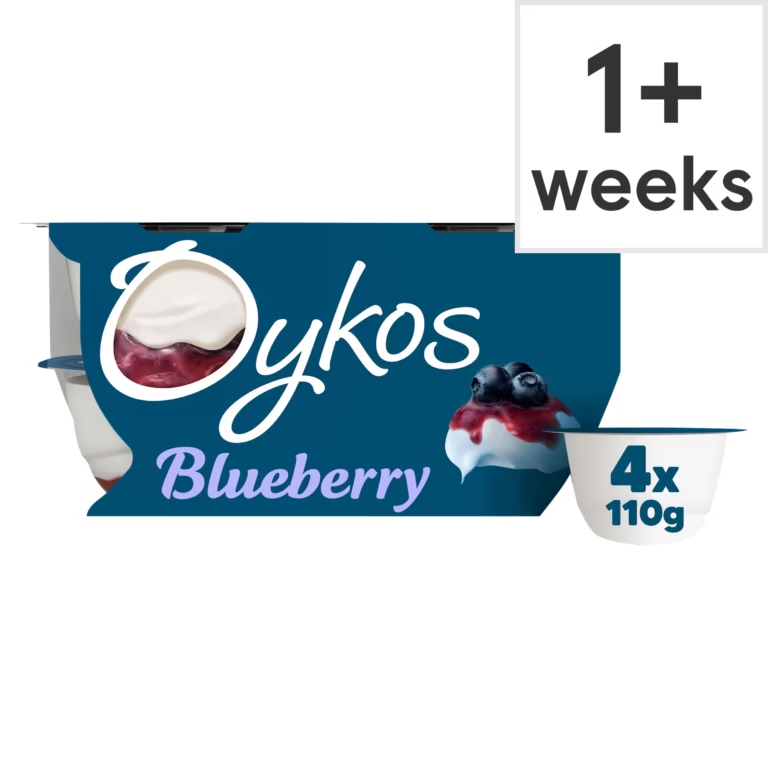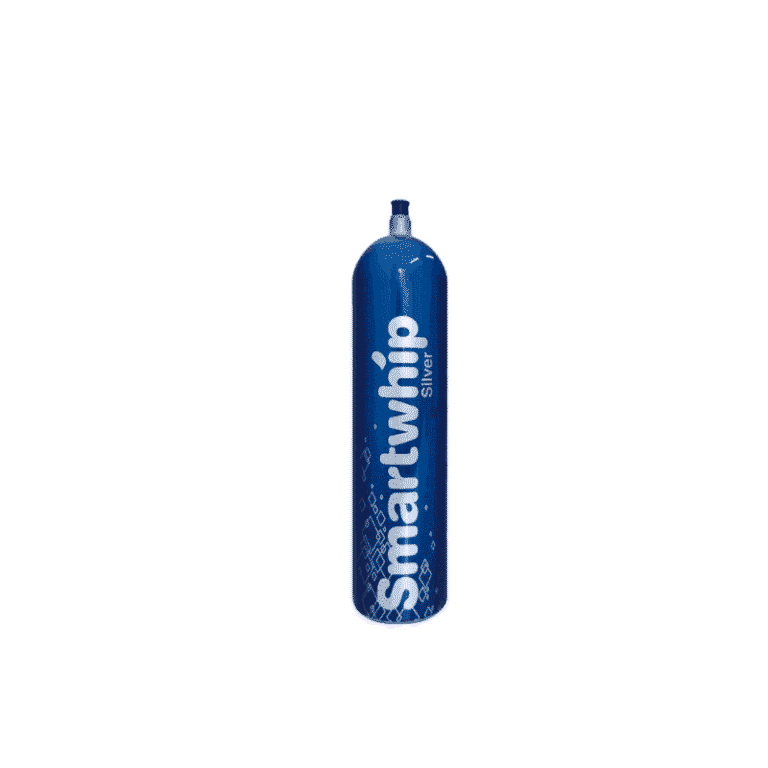In the dynamic world of culinary arts, cream chargers are a simple tool for creating whipped cream. However, their main component, nitrous oxide, has a dual nature. This gas, commonly found in cream chargers, serves as both a reputable culinary aid and a substance with potential for recreational misuse, adding a layer of complexity beyond its kitchen utility.
The legal status of cream chargers in the UK has attracted significant attention due to their dual nature. This has led to a comprehensive legal framework that governs their use. While nitrous oxide is celebrated for its culinary uses, its classification as a Class C drug underscores the serious legal implications of its misuse. Understanding how the law navigates this dual role is crucial, especially for consumers, retailers, and venue operators who regularly handle these products.
This write-up checks out the legal intricacies surrounding cream chargers in the UK, taking a look at regulations, enforcement, and their impact on numerous stakeholders. By differentiating between legit and illegal use, while thinking about government feedback and harm reduction strategies, we intend to make clear the responsibilities and legal commitments connected to nitrous oxide. This extensive review provides insight into both the culinary and legal facets affected by this apparently safe gas.
The Double Nature of Nitrous Oxide
Nitrous oxide, frequently referred to as “laughing gas,” has a double nature due to its different applications in both professional and recreational contexts. This colorless gas is well-known for its use in the culinary world as a crucial part of whipped cream chargers, also known as Smart Whips, which are essential tools in kitchens to aerate cream and various other ingredients effectively. Nonetheless, nitrous oxide also finds itself in the limelight for much less culinary purposes. When mistreated, it is breathed in for its psychoactive effects, leading to a state of euphoria or impaired thinking. The contrasting uses of nitrous oxide signify its two-faced role in culture: a beneficial cooking aid on one hand, and a debatable recreational substance on the other. These distinctions have actually led to continuous conversations concerning its legitimacy and policy, specifically in the UK.
Culinary Uses of Cream Chargers
Cream chargers have revolutionized the way we create whipped cream and other aerated dishes in the culinary arts. Filled with nitrous oxide, these chargers help whip cream into a foamy, airy texture almost instantly. Chefs and baristas worldwide rely on them to produce consistent, high-quality toppings for desserts, beverages, and innovative culinary dishes. Beyond whipped cream, they are also used to infuse flavors into liquids or create foams and espumas, expanding their culinary applications. This versatile tool brings creativity and efficiency to cooking, showcasing the positive commercial uses of nitrous oxide.
Recreational Misuse and Category
The recreational misuse of nitrous oxide has actually gathered interest from both health professionals and governing authorities due to its increasing appeal amongst recreational customers, despite its medical and culinary beginnings. When breathed in for an inexpensive high, nitrous oxide poses substantial health risks, consisting of Vitamin B12 deficiency, nerve damage, and damaged electric control. These potential damages require rigorous regulations. In the UK, the Misuse of Drugs Act 1971 and the Psychoactive Substances Act 2016 regulate substances like nitrous oxide, highlighting its category as a psychoactive substance.
Under the Psychoactive Substances Act, the sale of nitrous oxide for recreational purposes isillegal Nonetheless, possession is not outlawed unless connectedto supply This nuanced legal position mirrors the substance’s legit uses together with itspotential for abuse Advisory bodies like the Advisory Council on the Misuse of Drugs and the Office for National Statistics proceed to monitor its use and effects, ensuring plans continue to be upgraded. The Home Office, together with the Home Secretary, reviews these regulations frequently to fight misuse, while neighbourhood policing teams aim to discourage its anti-social behaviour-connected use. Consequently, individuals need to recognize both its benefits and risks to browse its double nature responsibly.
Legal Framework and Class C Category
Cream chargers, also known as whipped cream chargers, are small canisters filled with nitrous oxide (N2O), a gas used in culinary settings to aerate cream. Nitrous oxide is also known for its recreational use and psychoactive effects, which have led to substantial legal examination. In the UK, nitrous oxide is subject to numerous legal structures focused on regulating its misuse. Understanding exactly how these laws categorize and manage cream chargers is critical to understanding their legal condition and ramifications. Primarily, the legal conversations entail the category of nitrous oxide as a Class C drug under the Misuse of Drugs Act 1971, along with regulations under the Psychoactive Substances Act 2016. These regulations jointly specify the limits within which nitrous oxide can be legally had, offered, or used in various contexts.
Legislation Governing Nitrous Oxide
The control and policy of nitrous oxide in the UK stem from 2 main itemsof legislation The Misuse of Drugs Act 1971 classifies nitrous oxide as a Class C drug, primarily due to its potential for misuse and the psychoactive effects that customerscan experience This category lines up nitrous oxide with substances that have reduced potential for harm family member to Class A or B drugs, yet still requireds control over its distribution and use due to associated risks, such as nerve damage and Vitamin B12 deficiency.
Additional strengthening its policy, the Psychoactive Substances Act 2016 plays an essentialrole This legislation is made to clamp down on substances desired for recreational use that generate psychoactive effects by modifyingmood or perception Under this Act, nitrous oxide’s planned use is primarily inspected to distinguish between legit uses, such as in culinary applications, and illegal uses, primarily as arecreational drug The Home Office and the Advisory Council on the Misuse of Drugs proactively use these structures to monitor and handle the legal standing of nitrous oxide.
Effects of Class C Standing
The category of nitrous oxide as a Class C drug brings details ramifications for itsuse and distribution Unlike much more serious drug courses, possession of nitrous oxide is not outright illegal if used for legit purposes, such asculinary or medical applications Nonetheless, the law comes to be rigorous when nitrous oxide is connectedto recreational use Individuals found in possession with intent to misuse face legal effects, consisting of fines or imprisonment, to discourage recreational consumption and its associated health risks.
Furthermore, the Class C category promotes neighbourhood policing teams in focusing on anti-social behaviour issues attached to nitrous oxide misuse. The ramifications extend right into public policy, where numbers like the Home Secretary and Michael Gove have supported more stringent enforcement against recreational users to alleviate risks like drug driving and public disruptions. Inevitably, while the legal framework allows controlled use, it intends to discourage misuse, securing public health and order under the advisory of the Office for National Statistics and various other governing bodies.
Distinctions Between Legitimate and Illicit Use
Cream chargers, frequently referred to as Smart Whips, are small canisters filled with nitrous oxide and generallyused in the culinary industry While these devices contribute in whipping cream for culinary purposes, their misuse for recreational purposes has actually elevated several legal and health issuesin the UK This duality in use– legit within professional kitchens and illegal on the roads– demands a cautious understanding of their legal condition and ramifications. The separate emerges when thinking about the legal framework in the UK, specifically the Misuse of Drugs Act 1971 and the Psychoactive Substances Act 2016. Understanding this difference is not just vital for law enforcement and legal professionals, but also for the general public who may be unintentionally linking with their misuse.
Legal Use in Catering
In the culinary world, cream chargers serve a reputable purpose and are basic tools in professional kitchens throughout the UK These devices use nitrous oxide to aerate cream, resulting in the fluffy texture preferred in desserts and beverages. Their usage is common in restaurants, cafes, and catering solutions where efficiency and consistency are crucial. The overarching legal framework sustains such legitimate applications, ensuring that businesses and culinary enthusiasts can run without unnecessary governing worries.
Despite nitrous oxide being a psychoactive substance, its controlled use in catering is acknowledged due to itsessential role in food preparation Culinary professionals stick to rigorous standards to guarantee the safe handlingand storage of cream chargers This market is directed by various other health and safety regulations that secure both the customerand the environment Hence, the legit use of nitrous oxide in this context is not just legal yet also essential, highlighting a responsible usage that postures no substantial risk to public safety.
Recreational Misuse: Legal Effects
The recreational misuse of cream chargers, primarily for their psychoactive effects, has actually motivated governing actions under the Psychoactive Substances Act 2016. Nitrous oxide, known as laughing gas, is frequently mistreated for the feeling of euphoria it can generate. Nonetheless, this casual indulgence brings legal consequences. The possession of nitrous oxide with the intent to use it for non-legitimate purposes is considered illegal and can lead to substantial penalties.
The UK’s legislation concentrates on securing public health, identifying the potential risks of nitrous oxide misuse, such asnerve damage and vitamin B12 deficiency Law enforcement firms are watchful in monitoring and prosecutingillegal distribution and usage Mistreating nitrous oxide also drops under anti-social behavior examination by area policing teams, highlighting the broader social impact beyond privateharm The Office for National Statistics and Advisory Council on the Misuse of Drugs proceed to monitor usage trends, strengthening the legal actions in area to inhibit such recreational use, focusing on the health and safety of neighborhoods.
Government Response and Regulative Reasoning
The UK government has actually taken substantial steps in resolving the use and policy of cream chargers, which give nitrous oxide, frequently known aslaughing gas The increasing appeal of nitrous oxide for recreational use has actually motivated concern due to itspsychoactive effects and potential health risks In response to these challenges, the government has actually applied governing actions focused on mitigating the misuse of thissubstance The main purposes are to reduce the recreational use of nitrous oxide and to stop its associated damages, such asnerve damage and vitamin B12 deficiency These regulations, implemented under existing drug laws, mirror a broader technique to take on substance misuse and guarantee public safety.
Government Regulations
The UK’s governing framework worrying cream chargers and nitrous oxide is directed by a number of key itemsof legislation The Psychoactive Substances Act 2016 plays a main role in restricting the sale of psychoactive substances, consisting of nitrous oxide, whenused for recreational purposes Although nitrous oxide is acknowledged for its legit culinary and medical use, its possession and supply for recreational use can leadto penalties This legislation enhances the Misuse of Drugs Act 1971, which categorizes substances based on their potential harm to health and culture. The enforcement of these laws is crucial in minimizing anti-social behavior and shielding neighborhoods. The Home Office manages the execution of these regulations, sustained by local neighborhood policing teams that address associated offenses on the ground.
Advisory Council on the Misuse of Drugs (ACMD) Recommendations
The Advisory Council on the Misuse of Drugs (ACMD) plays an essential advisory role to the government pertaining tosubstance control The ACMD gives recommendations on the category and policy of substances like nitrous oxide, analyzing their risks and socialimpact Their competence notifies the government on efficient strategies to alleviate health risks, such as thoseassociated with recreational use and potential nerve damage The ACMD’s recommendations think about both the psychoactive effects of nitrous oxide and its medical benefits, ensuring balanced and notified policymaking. By integrating clinical suggestions from the ACMD, the UK government looks to address both the public health ramifications and the governing challenges associated with nitrous oxide use.
Impact on Consumers, Retailers, and Venues
In the UK, cream chargers, known for including nitrous oxide, generally referred to as laughing gas, have both culinary and recreational uses. They are integral to whipping cream, yet also impose health risks and governing issues. This duality affects consumers, retailers, and venues substantially. On the one hand, consumers benefit from their culinary application, yet on the various other, they deal with potential health risks, consisting of nerve damage and vitamin B12 deficiency dueto recreational misuse Retailers have to browse complex regulations, with the Psychoactive Substances Act 2016 making it illegal to sellnitrous oxide for recreational use Venues, specifically those serving food or organizing events, need to handle the risk of misuse, ensuring compliance with legal standards while keeping asafe environment Control with local authorities and adherence to Home Office guidelines are vital for venues and retailers to guarantee authorized operation and customer safety.
Customer Awareness and Responsibility
Customer awareness and responsibility play crucial dutiesin the proper use of cream chargers While these devices are primarily planned for culinary purposes, such as whipping cream, they have actually obtained prestige for their recreational use dueto the psychoactive effects of nitrous oxide Responsible consumers have to know of the potential health risks associated with the misuse of nitrous oxide, which can consist of nerve damage, vitamin B12 deficiency, and various other unfavorablehealth effects Understanding the legal framework is also essential; under the Psychoactive Substances Act 2016, possession of nitrous oxide for non-legitimate purposes can result in legal effects.
Awareness projects and instructional campaigns contribute to distributing information concerning the safe use of cream chargers. Consumers ought to guarantee they source them from reputable retailers that conform to legal standards. Therefore, it prevents penalties and health risks. Responsibility also extends to dissuading the recreational use of nitrous oxide in social settings, where peer pressure and anti-social behavior may contribute to its misuse. By focusing on education and learning, and self-regulation, consumers can enjoy the benefits of cream chargers safely and legally.
Retailer Compliance and Legal Commitments
Retailers dealing with cream chargers have to stick to rigorous compliance and legal commitments. Offering nitrous oxide for non-legitimate purposes isillegal under the Psychoactive Substances Act 2016 Retailers have to guarantee that their electrical outlets do not come to be hotspots for illegal activity, which may entail vetting their clients and establishing clear plansfor the sale of cream chargers Retail electrical outlets ought also to remain notified concerning developing legal structures with updates given by the Home Secretary and advisory notifications from bodies like the Advisory Council on the Misuse of Drugs.
To keep compliance, retailers may carry out actions such as age verification procedures and limitation the amounts offered to private customers. Such steps not only secure the retailer’s business but also help in suppressing misuse. Regular training for staff on the legal landscape surrounding nitrous oxide can increase awareness and stop unintentional involvement in illegal tasks. Retailers bear the responsibility of educating customers concerning the legal and health ramifications of inappropriate use, therefore serving as a first line of protection against potential misuse.
Location Management and Risk Reduction
Efficient place management consists of strategies for risk reduction associated to the visibilityof cream chargers Facilities that serve food or beverages might normally stock cream chargers for culinary applications; nevertheless, they have also to be watchful concerning feasible recreational misuse of nitrous oxide on theirpremises Supervisors ought to be aggressive in producing and implementing clear plans that inhibit illegal tasks and advertise a safe environment for all clients.
To alleviate risks, venues should consider teaming up with local law enforcement and neighbourhood policing teams to guarantee that extensive strategies are in place. Training staff to recognize signs of misuse and to apply safety nets, such as controlled storage and usage monitoring, is vital. In addition, noticeable information concerning the legal consequences and health risks associated with the misuse of nitrous oxide can act as a deterrent. By sticking to governing guidelines and promoting a society of safety and responsibility, venues can successfully handle the potential risks associated with cream chargers, sustaining community well-being and legal compliance.
Legal Needs for Possession and Distribution
Cream chargers, generally used for making whipped cream, contain nitrous oxide, a gas with legitculinary and medical uses Nonetheless, the misuse of nitrous oxide for its psychoactive effects, frequently referred to as “laughing gas,” has actually elevated legal and governing issuesin the UK The distribution, possession, and sale of nitrous oxide for non-legitimate purposes are subject to rigorous rules under a number of laws, consisting ofthe Psychoactive Substances Act 2016 and the Misuse of Drugs Act 1971 While the substance can be legally used for culinary purposes, the government has actually applied rigorous actions to monitor and control its recreational use, offered its potential health risks, consisting of nerve damage and vitamin B12 deficiency.
Possession Laws and Penalties
Possession of nitrous oxide for recreational use in the UK is controlledby the Psychoactive Substances Act 2016 This law bans the supply and possession of psychoactive substances that are plannedfor recreational use Although formerly considered a potential technicality product, the Act categorizes nitrous oxide as an illegal substance if plannedfor psychoactive effects This category has actually led to enhanced interest from law enforcement firms to suppress itsmisuse The penalties for illegal possession can differ based on the context yet might consist of fines, community service, or also imprisonment, depending on the extentand context of the offense The focus is specifically on large-scale possession connected to feasible supply for recreational use, where the effects are much more serious.
Distribution and Sales Regulations
The distribution and sale of cream chargers, including nitrous oxide, are legal for legitimate purposes, such as culinary use. Nonetheless, sellers have to conform to regulations ensuring that their products are not mistreated. This consists of clear labeling and restricting sales to those that have understandable factors for purchase, like businesses utilizing themfor whipping cream The Home Office, along with advisory bodies like the Advisory Council on the Misuse of Drugs, screens the distribution chain to stopmisuse Retailers found to be providing nitrous oxide for its psychoactive effects deal with substantial penalties, consisting of fines and loss of business licenses. To even more suppress illegal distribution, area policing teams proactively team up with local businesses to stop anti-social behavior associated with illegal use, showing an extensive approach to managing this substance while stabilizing its authorized applications.
Harm Reduction Strategies
Harm reduction strategies are vital in resolving the use of cream chargers, particularly given their popular yet dangerous use for inhaling nitrous oxide, generally known as laughing gas. While these chargers are legal and commonly readily available in the UK for culinary purposes, specifically whipping cream, their misuse can lead to major health issues and legal consequences. By applying harm reduction strategies, neighborhoods and individuals can alleviate the unfavorable effects associated with recreational use. Such strategies consist of education and learning on risks, giving safe use practices, and offering support for those desiring to reduce or quit their consumption. The approach focuses on minimizing the potential harm as opposed to concentrating entirely on restriction.
Enlightening Customers on Safe Practices
Enlightening customers is a key part of harm reduction. Raising awareness concerning the health risks associated with nitrous oxide, consisting of nerve damage and Vitamin B12 deficiency, is essential. Customers ought to recognize the importance of restricting their direct exposure to avoid these hazardous health outcomes. In addition, understanding of the legal ramifications is vital, as possession of nitrous oxide for inhalation drops under the Psychoactive Substances Act 2016.. By understanding the potential psychoactive effects and the risk of anti-social behaviour, customers can make even more enlightened decisions. This instructional effort also stresses the right use of cream chargers for culinary purposes to advertise safety and legitimacy.
Support and Resources for Impacted Individuals
Offering support and resources is an important step in assisting those negatively influenced by the misuse of nitrous oxide. Numerous companies offer guidance and therapy to those attempting to suppress their dependence on recreational drugs. These resources aid individuals browse their journey from recreational customers to responsible ones, or also toward abstaining if preferred. Gaining access to healthcare professionals who can address potential health issues, like Vitamin B12 deficiency, is also essential. Neighbourhood policing teams and local councils can work collaboratively to alleviate anti-social behaviour connected to misuse. Support networks’ goal is to supply a mix of medical, emotional, and legal aid to guarantee alternative recovery and well-being.

